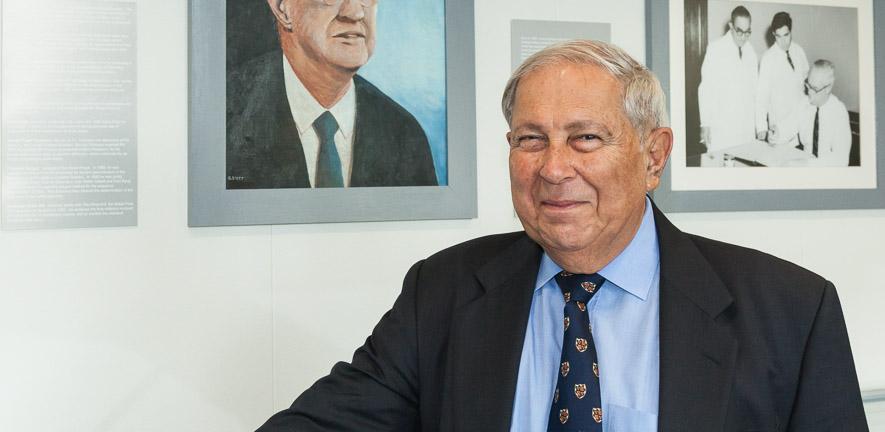
There is no known cure for SARS-CoV-2, the coronavirus that causes Covid-19, but several antiviral and corticosteroid drugs have been shown to be effective in alleviating symptoms and reducing mortality.
The issue as Hamied sees it, is that there is a world-wide shortage of many of these drugs, and some are prohibitively expensive. “The problem is the shortages and the expense,” he says. For example, Cipla is licensed to distribute Actemra in India, which is manufactured by Roche, “but it is expensive.” So Cipla has been increasing its production of potentially beneficial drug treatments and supplements at humanitarian prices.
Cipla has recently been licensed to manufacture and market Remdesivir in 130 countries. Remdesivir is an antiviral drug developed by the American biopharmaceutical company Gilead Sciences, which has been shown in double-blind tests to cut the duration of Covid symptoms for many patients. Hamied says: “Hats off to companies like Gilead, who have given us a voluntary license for the duration of the pandemic and beyond.”
At a time when there are worries that the US has bought up virtually all the available stocks of Remdesivir, Hamied says that Cipla could manufacture enough for up to 30,000 injections a week and build up stocks to between one and two million. Cipla’s version, called Cipremi, is also affordable. Hamied says that the price in India is approximately $50 per injection, whereas in America it can be up to eight to ten times this.
Hamied is also happy that Gilead has granted the Remdesivir voluntary licence to five other Indian pharmaceutical companies. “I don’t like the words ‘exclusive’ and I don’t like the words ‘monopoly’,” he says. “So there are half a dozen other Indian companies also making the same drug, which is good for the size of our country and for treating the pandemic.”
Hamied is all for approaching Covid-19 with a wide range of prevention, treatments and supplements. “My stand is that every individual who gets Covid is a different case. This depends on their age and pre-existing health conditions. Every person is different and will respond differently.” Because of this view, Cipla is manufacturing and marketing a variety of corticosteroids, neubulisers and inhalers, and antiviral drugs that may be useful in treating Covid symptoms.
“There are a lot of drugs which can be beneficially used as either treatments or supplements to treatments,” says Hamied. “For example, one of the side-effects of Covid is breathlessness, so a lot of the anti-asthma drugs are being used.” He points out that Gilead is also working on developing a version of Remdesivir that can be inhaled by nebulisation.
Another drug that has recently been shown to reduce mortality in hospitalised patients with Covid -19 is Dexamethasone, a corticosteroid with anti-inflammatory and immunosuppressant effects. Hamied says: “There are also a number of corticosteroids that we manufacture and distribute such as Ciclesonide, a corticosteroid with anti-inflammatory and antiviral properties. It was used very effectively a few years ago in the MERS-CoV (Middle East Respiratory Syndrome) epidemic.”
Cipla is also making and distributing Ciplenza (known generically as Favipiravir), an oral antiviral drug. It is not used as yet in the United States, but Hamied says: “Favipiravir is used extensively for Covid and seasonal flu in Japan, China and Russia. It is off-patent, meaning there are no restrictions on manufacturing and marketing it. I can tell you that when products are not covered under patent, the big pharma companies are not interested in the product and it is therefore left to companies like Cipla to market and promote them.”
Other supplements that he suggests are Theophylline and Theobromine, used as cough suppressants, and antioxidants along with vitamins C and D for improving the immune system. “These can do no harm, and can only help,” he says.
The search is also on for a vaccine for the virus. Although Cipla does not manufacture vaccines, Hamied points out that the Serum Institute of India has been working with Oxford University, who are in clinical trials with one of the most promising vaccines. “The Serum Institute have already started to produce the vaccine at their own risk,” he says. “They say they will be ready with millions of doses by the end of this year. If the drug is not approved they will discard the same, but if it is approved, they will be ready to supply them immediately.”
Hamied is proud to be an organic chemist. He admits: “I am not a medical doctor. I am a chemist and our company Cipla provides a range of medications and supplements that can give relief to Covid-19 patients. It is up to the doctors treating them to decide what treatment to administer.”
Cipla is a socially conscious pharmaceutical company known for providing low-cost generic antiretrovirals to people with HIV/AIDS in developing countries, and in the early 2000s reduced the cost of treatment to under a dollar a day by providing a 3-drug combination, Triomune. Hamied’s action as Chairman of Cipla at that time saved hundreds of thousands of lives in Sub-Saharan Africa and other developing countries.
Dr Yusuf Hamied is an alumnus and Honorary Fellow of Christ’s College, and completed his PhD in this Department in 1960 under the supervision of Lord Todd. In 2014 he was awarded an Honorary Doctorate of Science by Cambridge University. He received the Department’s inaugural Alumni Medal for services to the community in 2016. On that occasion he said: “There has always been a deep bond between the University, Christ’s College, and in particular for me the Chemistry department. Cambridge educated me, Cambridge taught me how to live, Cambridge showed me how to contribute to the world. I will always be indebted to this great institution and what it stands for." For his humanitarian work, in the year 2019 he was elected as an Honorary Fellow of the Royal Society and a Fellow of the Indian National Academy.

